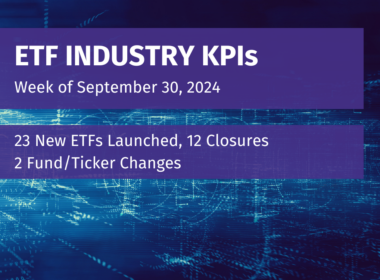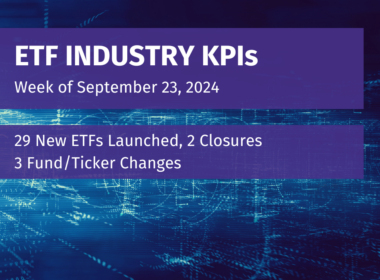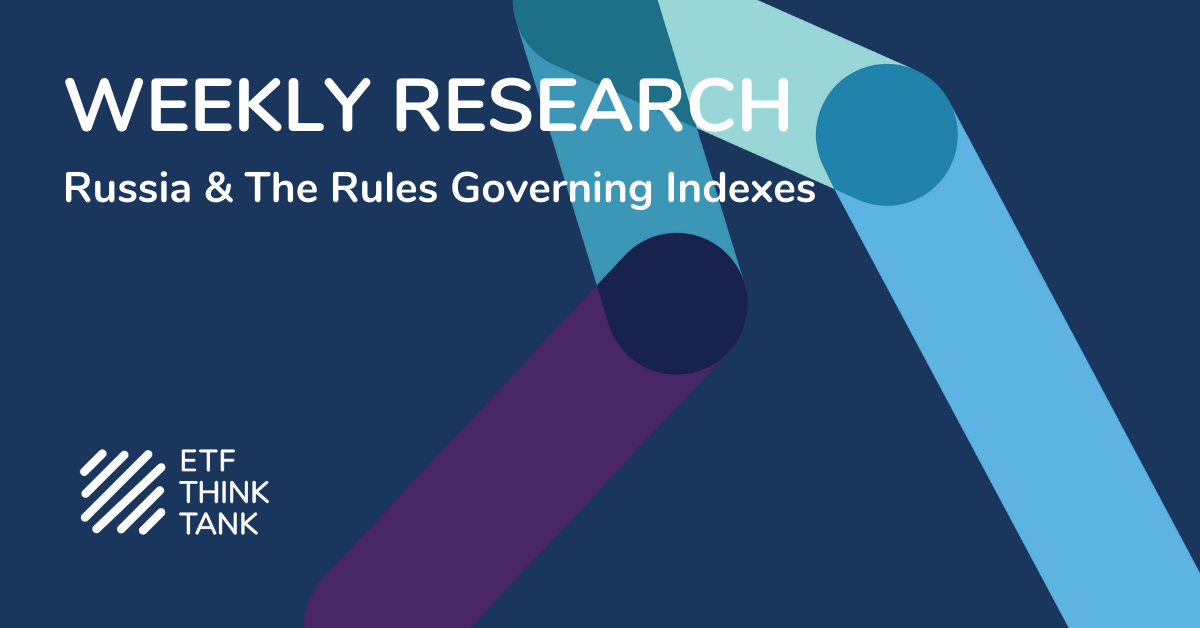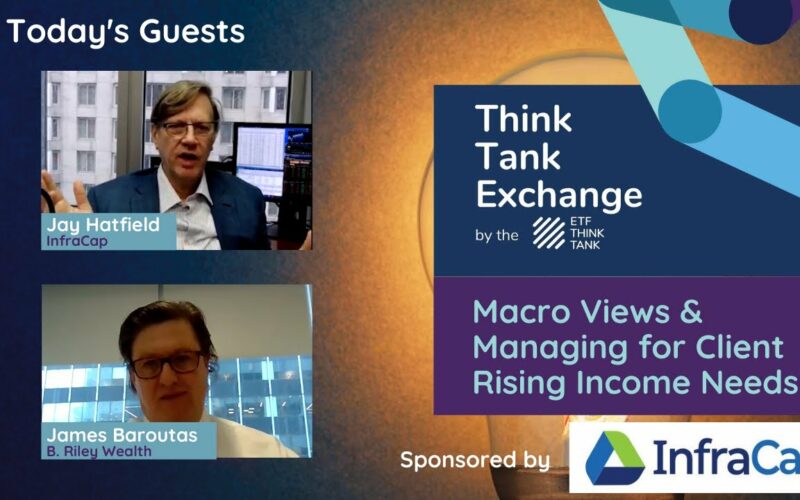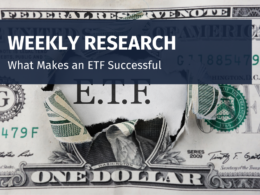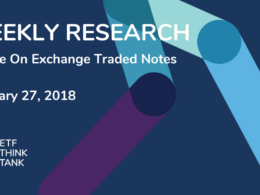The shutdown of the Russian stock market, global financial sanctions, and the subsequent decision by index providers to reclassify and remove Russia from various indexes reminds us that index investing is all about the rules.
That doesn’t mean, however, that the rules governing indexes ignore real-life investor experience.
The Moscow Exchange first closed for trading Feb. 25, and by March 2, FTSE Russell and MSCI announced Russia would be removed from indexes come March 7 and March 9, respectively. FTSE said Russia would be an unclassified market while MSCI reclassified it from emerging to standalone. Morningstar followed suit, and on March 4 took similar action, reclassifying Russia as unclassified and announcing the removal of Russian securities, including ADRs, from various indexes effective March 18.
It all happened really fast. We talked to several industry participants to get a sense of what drove these decisions, and the key takeaway was that Russia no longer met various index rules and metrics measuring market accessibility.
Rolf Agather, head of research and index product at Morningstar put it simply: “As index providers, we don’t have discretion to remove companies or countries just because they are doing bad things. This is all about investability. These Russian securities are no longer a fair representation of an investable market.”
According to him, rules for country classification and inclusion range from GDP, income, tradability, currency convertibility, etc. As long as countries and securities are trading normally, they remain included in a traditional index, regardless of how you may feel about them. He said:
“Our emotional response to an event like this may be great, but there has to be consistency. ESG indexes may have more opportunity to take action and allow investors to have more political expression, but in traditional indexes, we have to be consistent. Even in situations where there’s ambiguity, we have to do things in a predictable way. That’s why we have rules.”
The Closest Parallel
Country or security removal from indexes means removal from ETF portfolios. That’s no small thing. Indexes are a big deal in the ETF space.
Some 80% of the more than 1,700 equity ETFs in the U.S. market today track an index. About 63% of fixed income ETFs are tied to a benchmark. From a share of assets perspective, roughly 96% of all U.S.-listed ETF assets today sit in index-tracking ETFs. ETF investors love rules-based index investing. It’s about predictability, repeatability, transparency, and consistency. It’s about staying the course during times of peace and times of turmoil.
And that’s why this Russian ordeal and the action by index providers is so interesting.
If you looked for a parallel in history in search of familiar context with which to interpret the magnitude of this Russia-related action, you probably landed in the summer of 2015 when the Greek stock market shut down for five weeks between late June and early August due to a mounting debt crisis.
What happened then? Index providers assessed market accessibility and kicked the tires on all of their metrics and rules for classification and inclusion. The outcome, however, was very different. Greek securities weren’t pulled out of benchmarks.
ETFs such as GREK went on trading despite the Greek market shutdown, working as a price discovery mechanism—a best-estimate, if you will—for the underlying Greek securities that had halted trading. You may remember that at one point, GREK traded at an 18% discount to fair value of its underlying securities as the creation/redemption mechanism no longer worked properly.
Index providers stayed the course. Before any action was taken, five weeks had passed by and the Greek market reopened, allowing everything to work itself out.
It’s this type of precedent in what’s been called an unprecedented situation that had ETF traders like Charles Ragauss finding index providers’ decision this time around a bit of a head scratcher. Ragauss is Portfolio Manager and Head of Trading for Toroso Asset Management, overseeing $6 billion in ETF client assets.
From his perspective, it was surprising to see how swiftly it all went down. It’s not uncommon, he said, to have securities in a portfolio that can’t be priced or are difficult to price. In fact, having an illiquid stock sit in a portfolio for months without being priced at all isn’t unheard of. He said:
“Difficult accessing and pricing a stock isn’t immediate reason for removal. How quickly indexes moved on this, and how uniformly, makes it seem punitive.”
Rules vs Punishment
So, were index providers being punitive against Russia? Were they just impatient? Well, not exactly. Rules that govern index methodology and construction are both quantitative and qualitative.
Take MSCI, for example.
They vetted several metrics of accessibility in their assessment of the situation in Russia. From sanctions, to Russia’s exclusion from SWIFT, to Moscow’s exchange closure, to the central bank’s restriction on security sales, to Rubble convertibility, to impaired counterparties, to liquidity issues, everything was flashing red.
“It was unprecedented the volume and pace of how it all transpired on multiple fronts on how we measure accessibility,” Craig Feldman, Global Head of Index Management Research at MSCI, said.
Just as important, he noted, client feedback was loud and clear. Real-life investor experience is the qualitative rule that validates the quantitative metrics driving decision making.
MSCI spoke to asset owners, exchanges, asset managers, broker dealers, clients across the globe, and they uniformly agreed that the Russian market was not only quickly deteriorating but completely inaccessible. According to Feldman:
“Investor consultation is a qualitative cornerstone of our philosophy to understand how our clients are experiencing what we are seeing on the ground. A lot of times, on either side you may hear about things coming out on the regulatory side or in market dynamics, but the litmus test for us is to understand how investors are actually dealing with it, how it is impacting them. We don’t get involved in the geopolitical underpinnings of the situation. It’s all a rules-based based approach, but we do vet that against what our clients are experiencing.”
Silver Lining?
This Russian-related experience has been different from the Greek experience largely because of how it impacted real investors real time.
The qualitative rule of listening to investor experience confirmed the quantitative rules of market access and gave this situation a different sense of urgency this time around. Action was swift because it had to be.
This is powerful because we all know that money isn’t a metric on a screen. It’s personal. It’s reassuring to be reminded that even in a rules-based world where investing is about predictability, real life experience in the market matters.
Disclosure
All investments involve risk, including possible loss of principal.
This material is provided for informational purposes only and should not be considered an individualized recommendation or personalized investment advice. The investment strategies mentioned may not be suitable for everyone. Each investor needs to review an investment strategy for his or her own particular situation before making any investment decision.
All expressions of opinion are subject to change without notice in reaction to shifting market conditions. Data contained herein from third party providers is obtained from what are considered reliable sources. However, its accuracy, completeness or reliability cannot be guaranteed.
Examples provided are for illustrative purposes only and not intended to be reflective of results you can expect to achieve.
The value of investments and the income from them can go down as well as up and investors may not get back the amounts originally invested, and can be affected by changes in interest rates, in exchange rates, general market conditions, political, social and economic developments and other variable factors. Investment involves risks including but not limited to, possible delays in payments and loss of income or capital. Neither Toroso nor any of its affiliates guarantees any rate of return or the return of capital invested. This commentary material is available for informational purposes only and nothing herein constitutes an offer to sell or a solicitation of an offer to buy any security and nothing herein should be construed as such. All investment strategies and investments involve risk of loss, including the possible loss of all amounts invested, and nothing herein should be construed as a guarantee of any specific outcome or profit. While we have gathered the information presented herein from sources that we believe to be reliable, we cannot guarantee the accuracy or completeness of the information presented and the information presented should not be relied upon as such. Any opinions expressed herein are our opinions and are current only as of the date of distribution, and are subject to change without notice. We disclaim any obligation to provide revised opinions in the event of changed circumstances.
The information in this material is confidential and proprietary and may not be used other than by the intended user. Neither Toroso or its affiliates or any of their officers or employees of Toroso accepts any liability whatsoever for any loss arising from any use of this material or its contents. This material may not be reproduced, distributed or published without prior written permission from Toroso. Distribution of this material may be restricted in certain jurisdictions. Any persons coming into possession of this material should seek advice for details of and observe such restrictions (if any).




